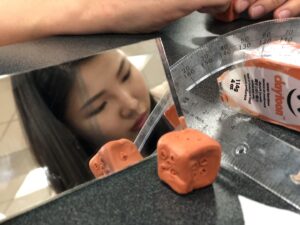This semester, the Liberal Arts and Sciences department of the New York Film Academy (NYFA) has opened three new Science elective courses for our BFA students: Principles of the Physical Sciences, General Biology, and (everyone’s favorite) Science and the Movies.
These new courses add to existing science electives Anatomy and Physiology, Geology, and Geography. Furthermore, this semester NYFA is introducing more amazing tools and resources to aid in the student’s learning process, including microscopes and other lab materials.
This new additional hands-on-equipment stays true to NYFA’s “learn by doing” pedagogical approach that is applied to its degree and conservatory programs, including filmmaking, acting for film, cinematography, screenwriting, documentary, photography, animation, and musical theatre.
For BFA students at the New York Film Academy, the liberal arts and sciences is an invaluable part of their curriculum, crucial to the the development of a creative artist. The department, chaired by NYFA’s Dean of General Education, Dr. Mary Samuelson, offers a broad array of classes in the Arts & Humanities, Social & Behavioral Sciences, Natural Sciences, and History of Art, Theatre & Media.
In science instructor Camille Boag’s General Biology class, students recently explored common backyard critters under the microscope, squealing at the intricate hairs on a spider’s leg and marveling at the delicate pattern of a butterfly’s wing. These students will never look at a flower the same way again after dissecting them in class, identifying their reproductive organs and reflecting on exactly why these small creatures look they way they do.
Science instructor Fred Siegel had his students explore the laws of physics in his Physical Sciences course, investigating the principles of reflection and refraction, the relationships between lens shape, focal length and aperture, and measuring the variables which influence the motion of a pendulum. Students clearly had a blast, and were in agreement that learning via hands-on laboratory exercises is an invaluable experience.
What better way to learn Science?!
[su_carousel source=”media: 28309,28308,28307,28306,28305,28304,28303,28302″ limit=”49″ link=”lightbox” target=”blank” width=”780″ height=”360″ title=”no” autoplay=”0″]